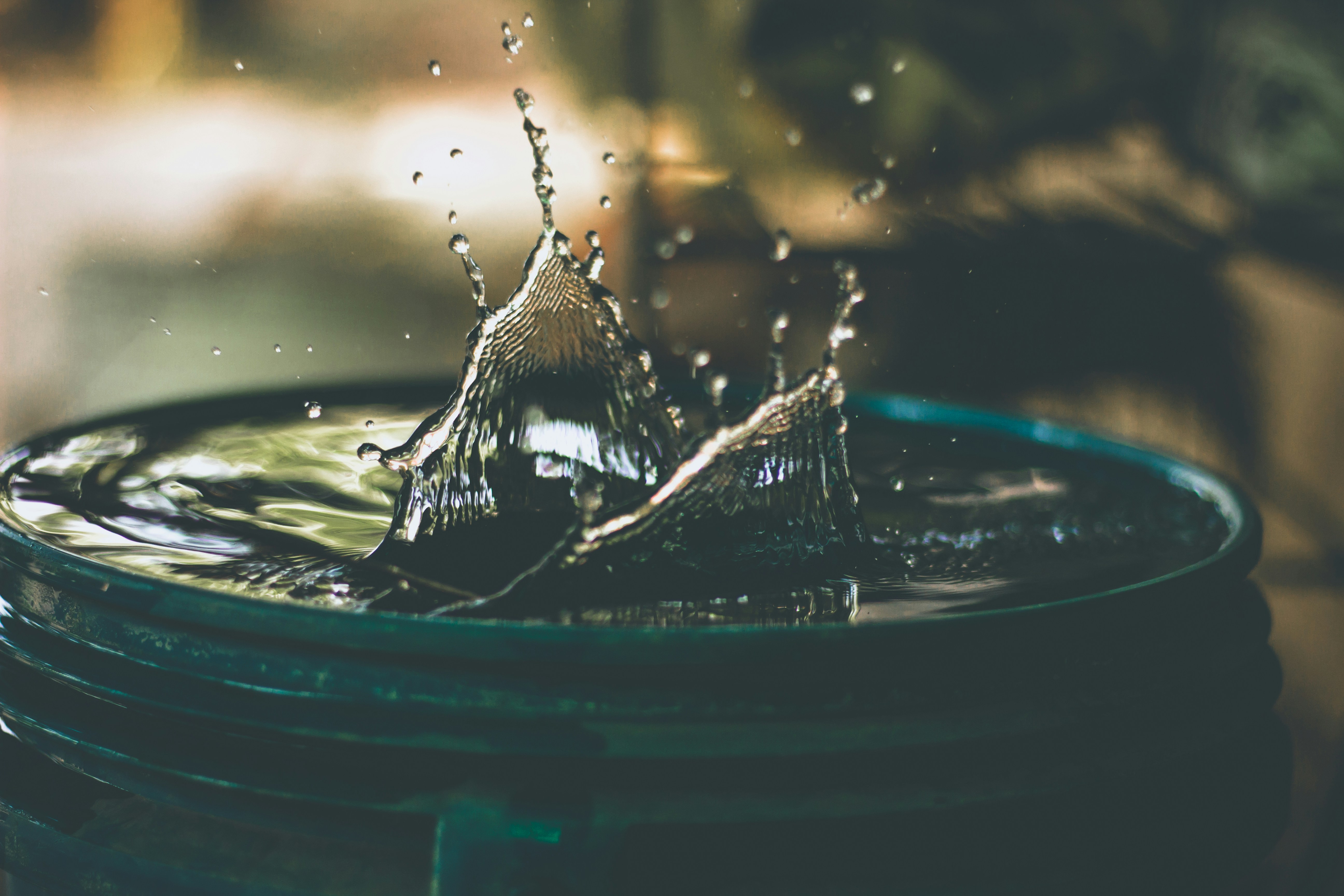Have you ever wondered about the simple ways you might boost your immune system? Often, when we think about improving our health, our minds wander to dietary changes, exercise routines, or perhaps new wellness supplements. However, there’s an element that is as old as time and is often overlooked: cold water.
Understanding the Science Behind Immune Responses
To dive into the potential benefits of cold water, it’s essential first to grasp the basics of immune responses. Your immune system is a complex network of cells, tissues, and organs that work together to defend your body against harmful invaders like bacteria and viruses. It’s your body’s natural defense mechanism, constantly on guard and ready to spring into action to keep you healthy.
How Does the Immune System Work?
Your immune system processes threats through both innate and adaptive responses. The innate response is the first line of defense and includes barriers like your skin and mucous membranes. When these barriers are breached, your body responds with the adaptive immune response, which involves cells and proteins that target specific invaders.
Cells and Proteins at Play
- White Blood Cells (Leukocytes): These cells circulate in the blood and tissues throughout your body, on the lookout for pathogens.
- Antibodies: Produced by B cells, antibodies adhere to antigens on the surface of pathogens—effectively marking them for destruction.
- Cytokines: These proteins act as signaling molecules, alerting other immune cells to come into action when a threat is detected.
The immune response is a concerted effort from all these players to identify, neutralize, and eliminate foreign threats.
The History of Cold Water Therapy
Are you curious how something as elemental as water could influence this intricate system? For centuries, various cultures have believed in the healing power of water, especially cold water. Cold water therapy, or the practice of using cold water for health benefits, isn’t a new concept.
Ancient Practices and Modern Revival
The ancient Romans, Greeks, and Egyptians were among the early adopters of this practice. Roman baths often included a cold plunge pool, called a “frigidarium,” after a hot bath. This ancient practice of temperature shock was believed to invigorate the body and improve general health.
In recent times, cold water therapy has experienced a revival with proponents claiming a broad spectrum of health benefits, including the modulation of the immune system.
The Physiological Impact of Cold Water
Does cold water merely awaken your senses with a shock, or is there something more at play? At a physiological level, the body’s reaction to cold water is profound and complex.
Cold Water and Circulation
When exposed to cold water, your body enters a state of vasoconstriction, where blood vessels become narrower. This process helps preserve core body heat. As your body warms back up, vasodilation occurs—blood vessels widen, increasing blood flow. This cycle enhances circulation, which supports efficient transport of immune cells throughout the body.
Cold Water and Hormone Production
Cold exposure can influence the production of certain hormones. For instance, the adrenal hormone norepinephrine, which can help modulate inflammation and pain, increases in response to cold temperatures. This hormone also plays a role in enhancing mood and increasing mental focus, indirectly benefiting immune health by reducing stress—a known factor in immune suppression.
Cold Water and Its Direct Influence on Immunity
Now, let’s get to the crux of the matter: how does cold water directly affect your immune system? Through a variety of mechanisms, cold water exposure can modulate immune responses, potentially enhancing your body’s ability to fight off illness.
Boosting White Blood Cell Count
Exposure to cold water has been suggested to increase the production of white blood cells. This increase can potentially bolster your immune responses, as these cells are instrumental in fighting off infections. Some research has also indicated a link between cold exposure and heightened leukocyte activity, adding further weight to this theory.
Reducing Inflammation
chronic inflammation can lead to various health issues, including immune dysfunction. Cold water immersion has anti-inflammatory properties, often likened to the effects of non-steroidal anti-inflammatory drugs (NSAIDs). By reducing systemic inflammation, your immune system becomes more efficient at responding to real threats rather than being constantly on “high alert.”
Enhanced Lymphatic Function
The lymphatic system is a parallel network to your circulatory system, playing a vital role in removing toxins and waste from your body. Cold water can enhance lymphatic function by stimulating contractions in the lymph vessels, aiding in the movement and drainage of lymph fluids. Efficient lymphatic drainage supports a healthy immune system by effectively capturing and filtering out pathogens.
Cold Water Therapies Around the World
Have you noticed just how widespread the love for cold water therapies is? From icy lakes in Scandinavia to cryotherapy chambers in urban centers, cold water therapy has taken many forms across the globe.
Scandinavian Ice Swimming
In countries like Finland and Sweden, ice swimming is more than a tradition—it’s a cultural practice ingrained in many people’s lifestyles. The belief is that such a dip not only invigorates the body but also fortifies the immune system, with participants swearing by its health benefits.
Cryotherapy
Cryotherapy is a modern spin on cold water therapy, involving exposure to extremely low temperatures in a controlled setting. Often used by athletes for recovery, proponents advocate its use for reducing inflammation and boosting overall immune function.
The Wim Hof Method
The Wim Hof Method, named after its creator, combines cold exposure, breathing techniques, and meditation. This practice has garnered attention for its purported immune-boosting effects, with some small studies indicating enhanced immune function and decreased inflammatory responses in practitioners.
The Psychological Benefits of Cold Exposure
Interestingly, cold exposure doesn’t just have physical benefits; it can also contribute positively to mental well-being. Reduced stress levels, enhanced mood, and increased tolerance to daily pressures can all indirectly promote a healthier immune system.
Stress Reduction
While initially shocking, repeated cold exposure can help reduce overall stress levels. The controlled stress of cold water exposure can foster resilience, training the body to handle stressors more effectively. Less stress equates to less cortisol in the body, which can support a healthier immune response over time.
Improved Mental Health
Cold exposure has been linked to the release of endorphins and the improvement of mood. Since mental health and immunity are intertwined, maintaining a healthy mental state can have beneficial effects on your immune system, reducing the risk of stress-related illness.

When Cold Water Therapy Isn’t For Everyone
It’s crucial to recognize that cold water therapy may not be suitable for everyone. Certain health conditions, such as cardiovascular problems, can be exacerbated by extreme cold. Additionally, individuals with a history of cold-related medical conditions should consult with their healthcare provider before attempting any form of cold exposure.
Practical Tips for Incorporating Cold Water into Your Routine
Intrigued about trying cold water therapy but unsure where to start? Here are some gentle ways to introduce cold water into your routine and harness its potential benefits safely.
Gradual Acclimatization
Start by slowly decreasing the temperature of your showers. You might alternate between warm and cold water, gradually extending your exposure to the colder water over a period of days or weeks.
Ice Baths
For a more intense experience, consider an ice bath. Fill a bathtub with cold water and ice cubes, and immerse yourself for a brief period, not exceeding ten minutes. Ensure you warm up safely afterward to avoid prolonged cold stress.
Cold Showers
Cold showers are a convenient way to incorporate cold water therapy into your daily routine. Begin your shower with warm water and end with a burst of cold water for about 30 seconds to one minute.

Listening to Your Body
Above all, it’s essential to listen to your body. Notice how you feel after cold exposure. If you experience persistent discomfort or negative effects, consider adjusting the intensity or consulting with a healthcare professional.
Immersing yourself in the potential benefits of cold water therapy might seem like an invigorating idea. While it holds considerable promise, especially concerning the modulation of immune responses, it’s always best to approach such therapies with a balanced perspective. Evaluate your personal health conditions and consider how these practices might fit into your lifestyle. After all, enhancing your immune system often comes down to finding the right balance of practices that work best for you in your journey towards better health.




